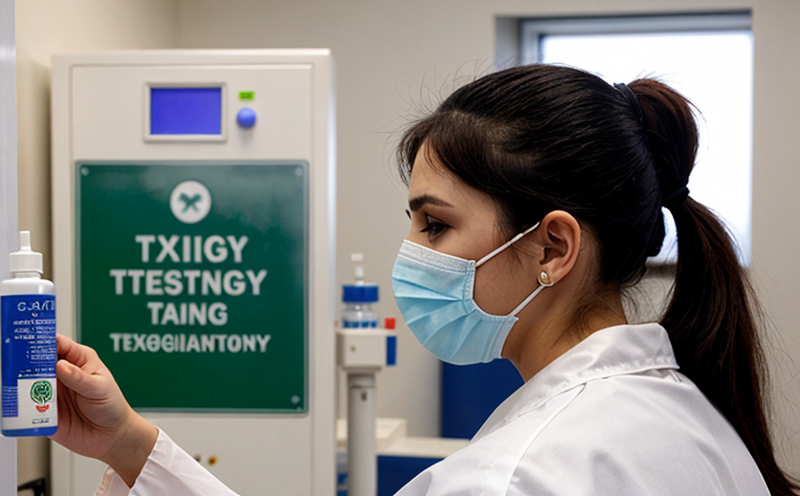In Vitro Hemolysis Testing of Compounds
Understanding and assessing hemolytic potential is critical in pharmaceutical development. In vitro hemolysis testing evaluates a compound's capacity to induce red blood cell lysis, which can lead to severe adverse effects if not properly evaluated during drug development. This test ensures that new drugs do not interact with the body’s red blood cells in harmful ways before they reach clinical trials and eventually the market.
The process begins by selecting an appropriate cell line for erythrocytes, often using human or animal red blood cells. The chosen compound is then dissolved into a physiologically relevant buffer at various concentrations to simulate potential exposure scenarios. A standard incubation period allows for any hemolytic effects to occur. Afterward, the extent of hemolysis is measured by spectrophotometric analysis or other suitable methods.
For accurate results, it’s essential to follow rigorous standards such as ISO 10993-24 and ASTM E587, which provide detailed protocols for conducting these tests. Compliance with international guidelines ensures consistency across different laboratories and regions, enhancing the reliability of your testing outcomes.
The importance of this test cannot be overstated, especially in sectors where product safety is paramount. By identifying hemolytic compounds early in development, pharmaceutical companies can avoid costly delays and potential liability issues associated with adverse reactions post-market release. Additionally, this testing aligns with regulatory requirements for drug approval from bodies like the FDA or EMA.
Our laboratory uses state-of-the-art equipment to perform these tests under controlled conditions that mimic real-world environments where the compound might interact with biological systems. This includes precise temperature control and pH adjustments tailored specifically to each test batch. Our experienced team of scientists ensures every step adheres strictly to protocol, ensuring accurate data collection.
With our expertise in this area, we offer comprehensive support throughout your project lifecycle—from initial consultation through final report generation. We also provide detailed analysis and interpretation services so you have clear insights into the implications of hemolytic findings for your product development strategy.
Why Choose This Test
The decision to include in vitro hemolysis testing as part of your pharmaceutical development process is a strategic one that can significantly impact the safety profile and market success of your products. By incorporating this test early on, you demonstrate a commitment to quality and regulatory compliance.
One key advantage is avoiding costly mistakes later in the pipeline when issues are more difficult—and expensive—to address. Early identification allows for adjustments or re-formulations without risking delays that could impact timelines or budgets. Furthermore, adhering to international standards like ISO 10993-24 and ASTM E587 builds trust with regulatory bodies and enhances your reputation within the industry.
Our team provides not just technical expertise but also personalized support tailored to meet your specific needs. From initial consultation through final report generation, we ensure every aspect of the testing process is conducted efficiently and effectively. The insights gained from this service can guide critical decisions regarding formulation adjustments or additional studies needed before proceeding further in clinical trials.
Choosing us means choosing a partner dedicated to helping you achieve your goals while maintaining the highest standards of safety and quality assurance.
Customer Impact and Satisfaction
The implementation of robust testing protocols like in vitro hemolysis contributes directly to improved customer satisfaction by reducing risks associated with product use. When pharmaceutical companies invest in thorough evaluation processes early on, they set themselves apart from competitors who may cut corners or rush through critical steps.
Customers appreciate knowing that the products they rely upon have undergone rigorous scrutiny before reaching their hands. This transparency fosters trust and loyalty among consumers, which ultimately leads to increased sales and brand loyalty. Moreover, meeting regulatory expectations demonstrates a company’s dedication to public health and safety, further enhancing its reputation.
We strive for excellence in every aspect of our work, ensuring that our clients receive accurate results delivered on time. Our commitment to quality is reflected not only in the technical accuracy of our reports but also in the personalized service we offer throughout each project phase. Whether you need assistance interpreting test outcomes or guidance on next steps, our experts are here to support you every step of the way.
International Acceptance and Recognition
- ISO 10993-24: This international standard specifies requirements for biocompatibility evaluation of medical devices, including hemolysis testing.
- ASTM E587: Developed by the American Society for Testing and Materials, this guideline covers the procedures for determining the lysis potential of materials intended to come into contact with blood.
- EN ISO 10993-24: This European standard aligns closely with its international counterpart, providing additional context and acceptance criteria within European markets.
- IEC 60601: While primarily focused on electrical safety of medical devices, this standard includes references to biocompatibility testing which may include hemolysis evaluations for certain components.
Compliance with these standards ensures that our services are recognized and accepted across various regions globally. By adhering to internationally recognized guidelines, we ensure consistency in methodology and results, facilitating smoother interactions between different regulatory bodies worldwide.





